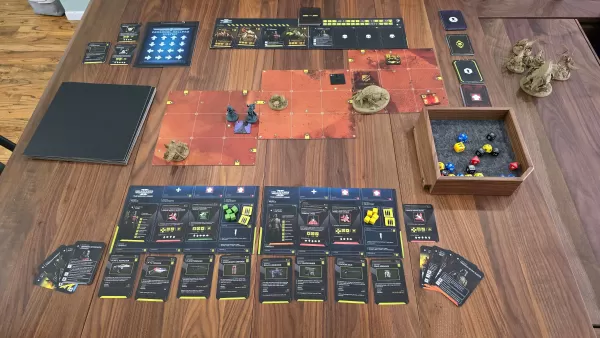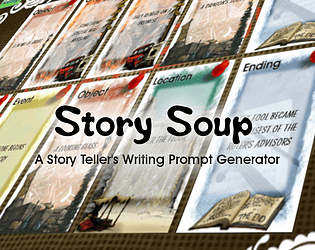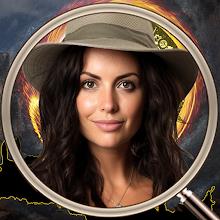In a recent episode of the official Xbox Podcast, tucked away at the end, we got a tantalizing update on Playground Games' eagerly awaited title, Fable. This snippet of news was a mixed bag—labeled as "treasure" for the rare glimpse of gameplay it offered, yet "cursed" with the announcement of a delay. Originally slated for a launch this year, Fable has now been rescheduled for a 2026 release.
While delays can be frustrating, they often signal a commitment to delivering a polished and immersive experience. For Fable, this additional time could mean a more richly detailed world. In the meantime, there's no better opportunity to delve into the existing Fable series. I highly recommend revisiting or discovering Fable 2, released in 2008 by Lionhead Studios, which remains a pinnacle of the series and a uniquely captivating RPG.
By modern RPG standards, Fable 2 stands out as an unusual gem. Even among its contemporaries like Fallout 3 and early 3D BioWare titles, its vision is distinct. While the game follows a traditional campaign with a linear main story and a collection of quirky side quests, its RPG mechanics diverge significantly from the complex stat systems of games like Oblivion and Neverwinter Nights. Fable 2 simplifies these aspects, making it incredibly accessible, especially for those unfamiliar with the intricacies of traditional RPG character sheets.
The game operates with just six main skills that influence health, strength, and speed, and a single damage stat for weapons. Armor and accessories don't have stats, keeping the focus on simplicity. Combat, while central to many quests, is straightforward and engaging, enhanced by inventive spellcasting, such as the amusing Chaos spell that makes enemies dance and clean floors. Moreover, death in Fable 2 comes with a minor XP penalty rather than a game over, making the experience less punishing.
Fable 2 is the perfect RPG for newcomers to the genre. In 2008, when games like Oblivion presented vast, sometimes overwhelming open worlds, Fable 2's Albion offered a more manageable and navigable setting. With the help of your loyal dog, you can explore beyond the main paths to uncover hidden treasures, caves, and intriguing Demon Doors, enhancing the sense of adventure and discovery. Although Albion's world is more linear than some of its peers, it compensates with a bustling, lively atmosphere.
While Albion may not match the vastness of BioWare's Infinity Engine games or the eccentricities of Morrowind, judging it by those standards would overlook its strengths. Fable 2 prioritizes a world filled with life over expansive exploration. Viewing it through the lens of a game like The Sims reveals a remarkable simulation of society.
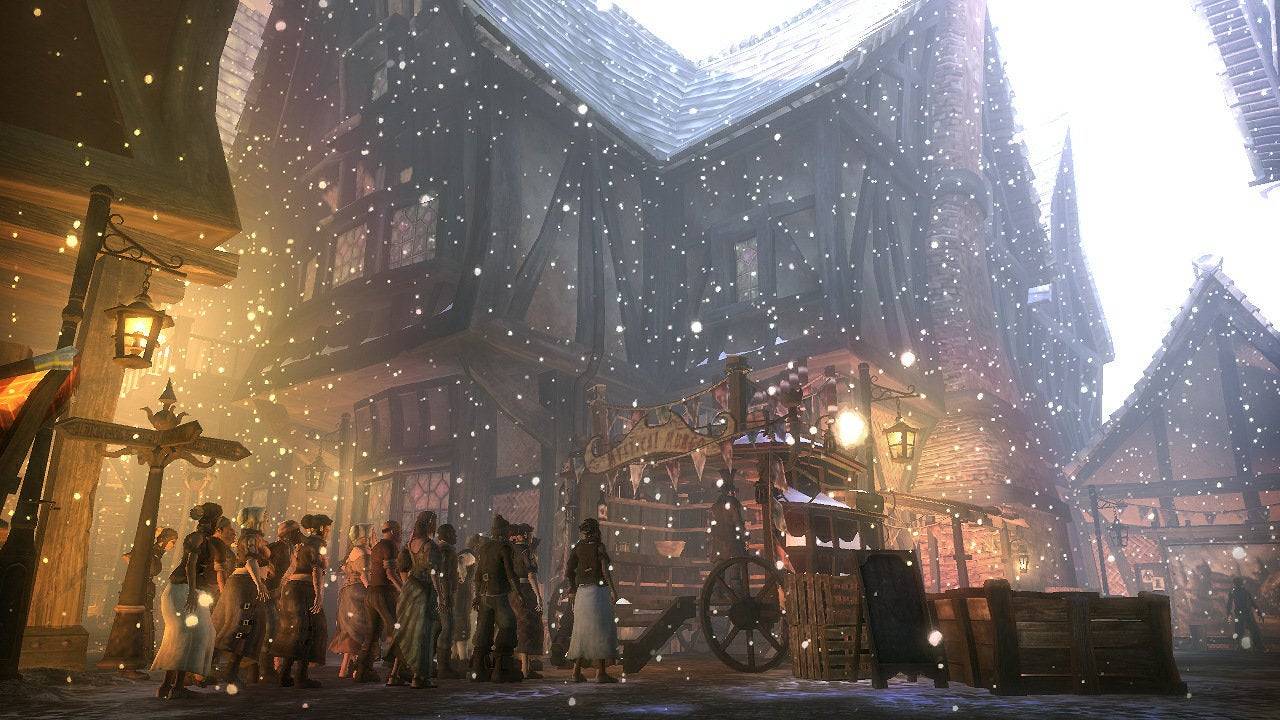
Albion functions like a living, breathing organism, where daily routines and societal interactions create a vibrant community. Town criers announce the day's events, and each citizen has an internal life influenced by their preferences and roles. You can interact with them using a variety of gestures, from delighting them with a well-timed fart to offending them with rude behavior. These interactions allow you to shape your reputation and influence the world around you in ways that few other games achieve.
Beyond being a Hero, immersing yourself in Albion's society is where Fable 2 truly shines. You can purchase almost any building, work at various jobs, and manage properties as a landlord or homeowner. Building relationships, including romance and starting a family, adds depth to your character's life. While these elements might feel artificial individually, together they create a compelling sense of life and community.
Few RPGs have replicated Fable's focus on societal simulation, but Red Dead Redemption 2 comes close with its responsive world and character interactions. If Playground Games aims to stay true to Fable's roots, they should draw inspiration from such living worlds rather than the more popular tabletop-inspired RPGs.
Playground Games must also maintain Fable's quintessentially British humor, including its satire of the class system and playful antics. The inclusion of beloved actors like Richard Ayoade and Matt King in trailers suggests they're on the right track. Above all, they must preserve Lionhead's distinctive approach to morality.
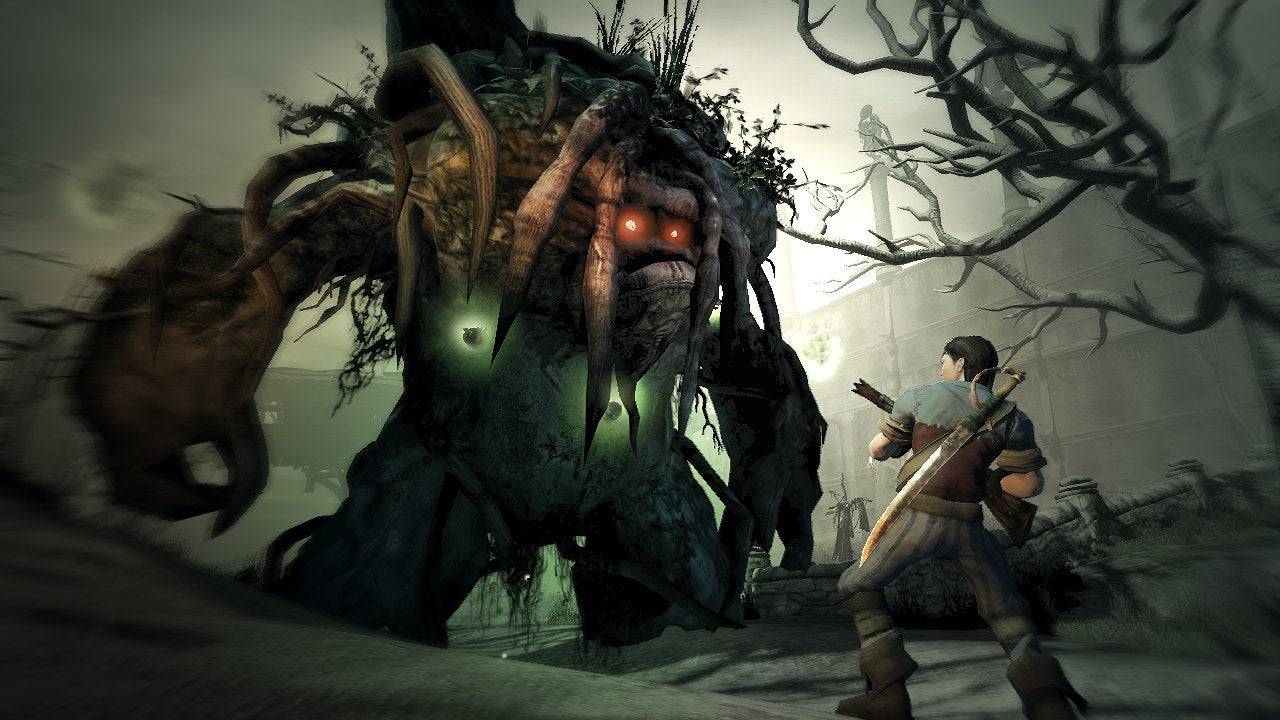
Peter Molyneux, the founder of Lionhead Studios and lead designer of the Fable series, has always emphasized the dichotomy of good and evil. Unlike the nuanced moral choices in games like The Witcher, Fable 2 presents stark contrasts between angelic and demonic actions. This binary approach, exemplified in quests where you can either save or destroy, allows players to fully embrace heroism or villainy. Fable 2's system of moral alignment and its impact on your character and the world around you is both creative and impactful.
The recent pre-alpha gameplay footage from Playground Games, while brief, hints at a more detailed and expansive world for the new Fable. The presence of a horse suggests a more open world, and the lush forest indicates potential for deeper exploration. However, it's the glimpse of a bustling city that echoes the societal simulation that made Fable 2 so special.
As we await the 2026 release, there's ample time to revisit or experience Fable 2 for the first time. Its charm and uniqueness are crucial for understanding what makes the Fable series special. Playground Games must ensure that the new Fable remains true to its roots, embracing its quirky humor and binary moral choices, rather than conforming to current RPG trends. Fable should continue to be Fable, complete with all its delightful oddities.

